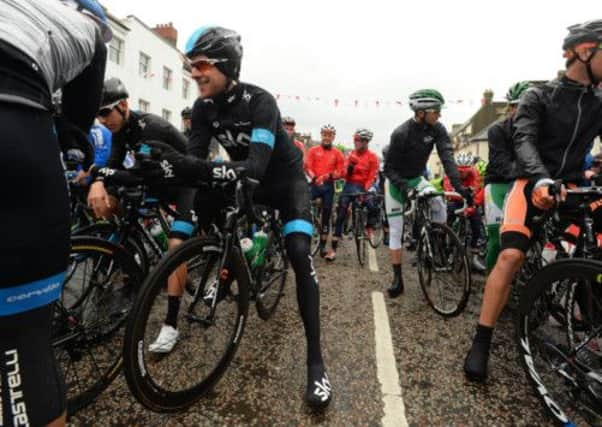Jane Devine: Female professional cycling in decline


As we watched some of the footage yesterday, my son, aged six, asked: “Why are there no girls cycling?” Ah, out of the mouths of babes: why indeed. He was perplexed. I cycle, he cycles, we all cycle, so to him the dearth of female competitors seemed strange, to say the least. “There were girls cycling in the Olympics,” he continued. So how to explain without causing him to doubt the validity of his first reaction: one of confusion about the lack of women in the race?
Women’s cycling is a strong and popular sport. The profile it has generated over successive Olympics from Nicola Cooke in Bejing to Laura Trott in London has made these female cyclists household names. Millions of us watched them and their team-mates in the Olympics last year. Millions of us also watched the Tour de France, where there are no female competitors.
Advertisement
Hide AdAdvertisement
Hide AdI don’t pretend to know the nuances and the politics of professional cycling, but it is clear that the women’s sport is in decline. There used to be a Tour de France for women, there used to be a World Cup, there used to be a Tour de l’Aude. These women’s races have all disappeared.
So why, when the standard is so high and the public are interested, are there no women in the Tour of Britain? They don’t need a separate race, they could all compete together. We don’t have separate marathons and we don’t have separate tennis grand slams. Even though there are separate male and female events, professional athletes compete side by side in these sporting events and competitions. So why not in cycling?
The difference in the professional sport compared to the Olympics suggest it is not to do with talent; the fact the other professional sporting events include women suggests it is not to do with popularity. So is it just basic sexism? Is professional cycling still existing in the dark ages along with golf?
If so, then it is not sustainable. Professional cycling, like other sports, survives because people pay: people pay to watch it and people pay to be associated with it. It responds to basic market forces of supply and demand. There is a demand and an interest in women’s cycling and one that is set to rise as leisure cycling takes off in the UK, with record numbers of bike sales.
These basic market forces will ensure that the women’s sport will eventually get the profile it should have, giving women cyclists the opportunities to compete that they deserve. Professional cycling will ignore that at its peril.
So, what did I say to my son? I said: “Some people think girls aren’t good enough on bikes, but we know that’s not true, don’t we?” He agreed as I demonstrated a wheelie.